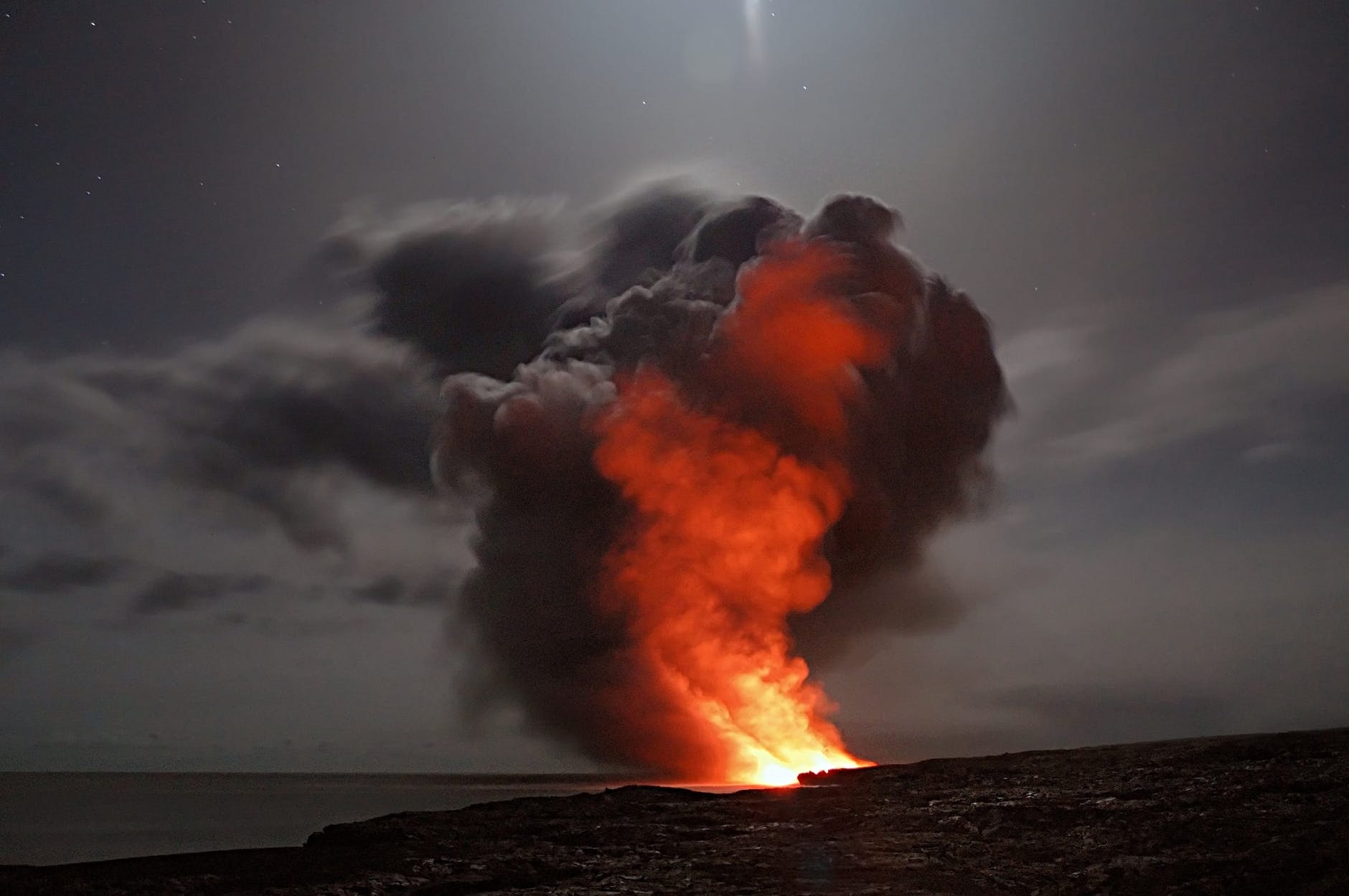
By Stephen Walt, Foreign Policy, 6/13/22
The political scientist Robert Gilpin once wrote that “no one loves a political realist.” His lament seems especially apt today, as the ongoing tragedy in Ukraine has spawned an uptick of realism-bashing. A small sample: Anne Applebaum and Tom Nichols of the Atlantic, Columbia University professor and fellow FP columnist Adam Tooze in the New Statesman, University of Toronto professor Seva Gunitsky, and Michael Mazarr of Rand Corp. Even Edward Luce of the Financial Times, who is consistently one of the most insightful observers on U.S. and global policy, recently opined that “the ‘realist’ school of foreign policy … has had a terrible press recently, most of it richly deserved.”
Much of this ire has been directed at my colleague and occasional co-author John J. Mearsheimer, based in part on the bizarre claim that his views on the West’s role in helping to cause the Russia-Ukraine crisis somehow make him “pro-Putin” and in part on some serious misreadings of his theory of offensive realism.
Another obvious target is former U.S. Secretary of State Henry Kissinger, whose recent comments urging peace talks with Moscow, a territorial compromise in Ukraine, and the need to avoid a permanent rupture with Russia were seen as a revealing demonstration of realism’s moral bankruptcy. As I explain below, Kissinger is an outlier within the realist tradition, but he’s still a convenient foil for its critics.
The irony here is hard to miss. Realists of various stripes repeatedly warned that Western policy toward Russia and Ukraine would lead to serious trouble, warnings that were blithely ignored by those who claimed that NATO’s open-door policy would lead to lasting peace in Europe. Now that war has broken out, lives are being lost, and Ukraine is being destroyed, you would think proponents of open-ended NATO enlargement would have set aside their idealistic illusions and think about these issues in a hard-nosed, realist fashion. Yet the opposite has occurred: The people who got it right are singled out for attack, while those who believed that enlarging NATO would create a vast zone of peace in Europe are insisting that the war continue until Russia is totally defeated and greatly weakened.
This phenomenon isn’t all that surprising, insofar as realism has never been popular in the United States. It is recognized as an important tradition in the study of international relations, but it is also the object of considerable animosity. In 2010, for example, University of California, San Diego professor David Lake’s presidential address to the International Studies Association criticized realism and other paradigms as “sects” and “pathologies” that divert attention from “studying things that matter.” Back in the 1990s, when many believed liberal values were spreading around the world, the political scientist John Vasquez published a lengthy article in American Political Science Review claiming that realism was a “degenerative” research program that ought to be discarded.
So why do so many people dislike realism so intensely? I might not be the most objective judge on this issue, but here’s what I think is going on.
Realism is a rather gloomy perspective on politics, even in its more benign versions. It assumes that people are irredeemably flawed and that there is no way to eliminate all conflicts of interest among individuals or the social groups they form. Moreover, all versions of realism highlight the insecurity resulting from the absence of an overarching global authority that can enforce agreements and prevent states from attacking one another. When violence is a possibility, human groups of all sorts—be they tribes, city-states, street gangs, militias, nations, states, etc.—will look for ways to make themselves more secure, which means they will be strongly inclined to compete for power.
Contrary to what some critics maintain, realists do not see these features as iron laws that determine every move a state might make. Nor do they believe that cooperation is impossible or that international institutions are of no value, and they certainly don’t think that humans lack agency or the ability to make different choices as they strive to protect their interests. Realists simply maintain that international anarchy (i.e., the absence of an overarching central authority) creates powerful incentives for rivalry and competition among states—incentives that are difficult to manage or overcome.
It’s not hard to understand why many people are reluctant to embrace such a pessimistic view of the human condition, especially when it appears to offer no clear escape from it. But the real question is this: Is this is an accurate view of international politics? When you consider the conflict and strife that have occurred throughout human history and continue to this day, and the tendency for states to worry about their security, the prima facie case for realism is strong.
Second, realism’s emphasis on power politics leads many people to assume its proponents as overly fixated on military power and inclined to favor hawkish solutions. But this view is simply false: Apart from Kissinger (who was a hawk during the Vietnam War and backed the U.S. invasion of Iraq in 2003), the most prominent realists have generally leaned dovish. George F. Kennan, Reinhold Niebuhr, Walter Lippmann, Hans J. Morgenthau, and Kenneth Waltz were all early critics of U.S. involvement in Vietnam, and their scholarly successors were among the more prominent voices opposing the Bush administration’s march to war against Iraq in 2003.
Third, realism is also seen as indifferent or even hostile to ethical or moral considerations. There is a grain of truth in this charge, insofar as realism’s theoretical framework does not incorporate values or ideals in any explicit way. As the name implies, realism tries to engage with the world “as it really is,” not as we might like it to be. Yet as Michael Desch and others have pointed out, most realists are also guided by profound moral commitments, and they are conscious of both the tragic nature of international politics and the importance of trying to act morally despite the pressures to act otherwise. For realists, noble aims and good intentions are not enough if the resulting choices lead to greater insecurity or human suffering.
Fourth, realism is unpopular in the United States because it runs counter to the widespread belief in American exceptionalism—the idea that the United States is uniquely moral and always acts for the greater good of humanity. For realists, the need to remain secure and independent in a world lacking a central authority often leads states with very different characteristics to act in strikingly similar ways. The United States and the former Soviet Union could not have been more different in terms of their domestic orders, political ideologies, and economic systems, for example, but the pressures of competition during the Cold War led each to form and lead large alliances, promote their respective ideologies wherever they could, build tens of thousands of nuclear weapons, intervene in many other countries, fight destructive proxy wars, and assassinate foreign leaders. Locked in competition, these two very different countries produced rather similar foreign policies.
To be sure, realists recognize that domestic politics are not irrelevant and that there are important differences between, say, Nazi Germany on the one hand and Edwardian Britain on the other. But where idealists are quick to divide the world into “good” and “bad” states—and to blame the world’s problems almost entirely on the latter—realism recognizes that even well-established democracies will do horrible things to others when they believe their vital interests are at stake.
Back in the 1960s, for example, the Johnson administration was so worried that South Vietnam would become part of the communist world that it sent nearly half a million troops across the Pacific to fight there; 58,000 of those soldiers didn’t return. The U.S. military used napalm and Agent Orange and dropped some 8 million tons of ordnance on the country. When that didn’t work, the Nixon administration invaded Cambodia, undermining its fragile government and unwittingly helping the genocidal Khmer Rouge regime to gain power. Vietnam was a weak country and more than 8,000 miles from the continental United States, yet its leaders managed to convince themselves these actions were necessary for U.S. national security.
In July 1979—less than a decade later—the Carter administration became alarmed when a popular uprising in Nicaragua toppled pro-American dictator Anastasio Somoza, much as the Maidan uprising in Ukraine toppled pro-Russian President Viktor Yanukovych in February 2014. When it came to power in January 1981, the Reagan administration responded by organizing and arming a rebel army—the Contras—much as Russia has backed separatist militias in Ukraine. Nicaragua was a poor country with a population of barely 4 million people, yet U.S. officials saw it as a serious threat. Some 30,000 Nicaraguans died in the Contra War—equivalent to losing approximately 2.5 million Americans as a percentage of the country’s population.
These examples of past U.S. misconduct do not justify what Russia is doing today in the slightest. If we are consistent, all these actions (to include the invasion of Iraq) should be roundly condemned on both strategic and moral grounds. Nonetheless, they are a reminder that governments of all types will do brutal things when they feel threatened, even if their fears are sometimes illusory. But in a country like the United States, which sees itself as uniquely virtuous and where top officials rarely admit mistakes or accept responsibility for them, reminding people that U.S. leaders have sometimes acted much as Russian President Vladimir Putin is acting today is probably not be the best way to win them over.
This phenomenon is especially powerful in wartime, when the understandable desire to rally popular support encourages governments to describe their own cause as wholly just and to portray their opponents as the embodiment of evil. To suggest that prior U.S. actions might have had something to do with the tragedy in Ukraine does not excuse Putin’s decision to invade or the conduct of the Russian armed forces, but it is bound to trigger a harsh reaction from those seeking to frame the conflict as a simple morality play between a brutal aggressor and an innocent victim and the latter’s well-intentioned and equally innocent friends.
Realists recognize that evil acts occur and that some states behave worse than others, but they also understand that all states compete for security in an imperfect world and that no country’s conduct is beyond reproach. For this reason, realists see diplomacy and compromise as critical tools for managing disagreements and resolving differences without the use of military force. By contrast, if evil leaders or regimes bear sole responsibility for all the trouble in the world—as liberals, neoconservatives, and other idealists maintain—the only solution is to eliminate the evildoers once and for all. The problem, alas, is that trying to get rid of governments you deem evil tends to get a lot of people killed. And in some circumstances—like the current war in Ukraine—it could lead to a wider and more dangerous conflict.
Finally, realism tends to be unpopular because its proponents have an annoying tendency to be right. Not all the time, of course, because foreign policy is a complicated activity in which uncertainty is pervasive and the various theories that can help guide policymakers are crude instruments at best. For example, most realists—myself included—were surprised that NATO survived and expanded beyond the Cold War.
But realists were right about NATO enlargement, dual containment in the Persian Gulf, the war in Iraq, Ukraine’s ill-fated decision to give up its nuclear arsenal, the implications of China’s rise, and the folly of nation-building in Afghanistan, to note just a few examples.
That’s not a bad record, especially when compared to realism’s many critics. But I doubt it will make realism more popular, even if most states continue to act more or less as realism depicts.

